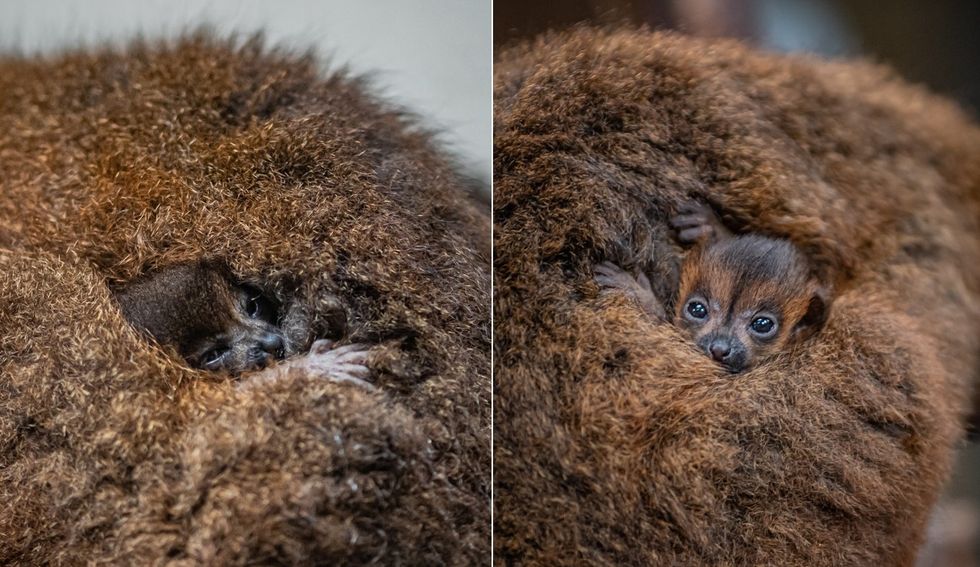
The first twin red-bellied lemurs, one of the world’s rarest primates, have been born at Chester Zoo.
The “absolutely tiny” pair, weighing just 70 grams each, were spotted by zookeepers nestled in their mother Aina’s thick fur moments after their birth.
The red-bellied lemur is currently listed as vulnerable to extinction due to habitat loss, hunting and the illegal wildlife trade.
Primate keeper at Chester Zoo Jessamine Smith said the birth of the twins to parents Aina and Frej is “incredibly special”.
“The birth of any red-bellied lemur is always a real boost for the conservation breeding programme, but to have twins born for the very first time at the zoo is incredibly special,” she said.
“At the moment they’re absolutely tiny, but they develop really quickly and within a few months will be off exploring the treetops by themselves.”
Ms Smith said the species is one of the few lemur species that form a monogamous couple, meaning they “pair up for life and live in a small family troop of mum, dad, and their offspring”.
“So far mum Aina and dad Frej are both doing a wonderful job of caring for their new babies – they can often be seen snuggled up in mum’s fur and clinging tightly to her as she leaps from tree to tree,” Ms Smith added.

The number of red-bellied lemurs has declined by more than 30% in recent years and an international conservation-breeding programme involving some of the world’s leading zoos is now working to secure their future.
Mike Jordan, director of animals and plants at the zoo, said: “Red-bellied lemurs are sadly undergoing a sharp decline in Madagascar, meaning the safety net population found in leading zoos around the world is becoming ever more important.
“The arrival of these two new babies will help us continue to play a vital role in ensuring the species has a future.”













